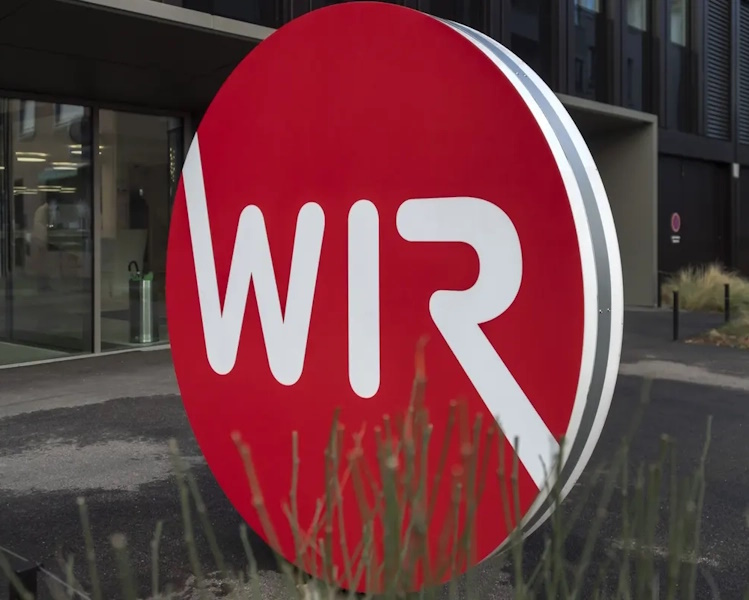How the Swiss WIR-Bank is Shaping Economic Stability:
A Deep Dive into Complementary Currencies:
In the world of finance, Switzerland is often synonymous with stability, precision, and a robust economy. But there's a lesser-known gem in the Swiss financial landscape that's been quietly contributing to this stability for nearly a century—the WIR-Bank. While the world grapples with economic downturns and the unpredictability of global markets, the Swiss WIR-Bank, with its unique complementary currency system, stands out as a beacon of resilience.
Getslocal draws its inspiration for GETS Trade from the WIR Bank model to bring a similar system to the UK and the USA. The aim is to create a stronger, more resilient economy that benefits all citizens and businesses.
Visit Wir Bank: https://www.wir.ch
What is the WIR-Bank?
Founded in 1934, in the aftermath of the Great Depression, the WIR-Bank was established with a revolutionary idea: to create a complementary currency system that could support businesses during tough economic times. The WIR (which means "we" in German) isn't just a currency; it's a credit system that businesses can use alongside the Swiss Franc to facilitate trade, particularly during financial crunches when conventional money is scarce.
The WIR-Bank operates as a cooperative, where member businesses can trade goods and services using WIR credits. Unlike traditional banks, the WIR-Bank doesn’t charge interest on its credits. Instead, it provides an alternative means of financing that businesses can rely on, particularly when traditional credit channels are drying up. This system has created a parallel economy that runs in tandem with Switzerland's mainstream financial system, providing a crucial buffer during economic downturns.
The Countercyclical Nature of WIR-Bank:
One of the most fascinating aspects of the WIR-Bank, as explored in the paper "The Macro-Stability of Swiss WIR-Bank Credits: Balance, Velocity, and Leverage" by James Stodder and Bernard Lietaer, is its countercyclical behaviour. In simpler terms, this means that the use of WIR credits tends to increase during economic downturns and decrease during booms.
But why does this matter?
During a recession, businesses often face liquidity constraints. Traditional banks may tighten their lending, and cash flow can become a significant problem. This is where the WIR-Bank comes into play. Businesses increase their use of WIR credits during these times, allowing them to continue trading and maintaining operations despite the broader economic challenges. By facilitating trade when conventional money is tight, the WIR-Bank helps keep the economy moving, mitigating the effects of the downturn.
How Firms Use WIR Differently:
The study also sheds light on the different ways in which businesses use WIR credits. Larger firms tend to hold higher WIR balances. These companies might use the credits more strategically, perhaps as a financial cushion that they can tap into when needed. Their ability to hold onto these credits provides them with a buffer during economic uncertainty, allowing them to navigate downturns with more confidence.
On the other hand, smaller businesses, which often operate with tighter margins and less financial flexibility, use WIR credits more frequently and with higher velocity. This means that they are more likely to spend WIR credits quickly, facilitating immediate transactions that keep their operations afloat. For these smaller firms, the WIR system is not just an alternative; it’s a vital lifeline that helps them survive when cash flow becomes a critical issue.
The WIR-Bank’s Impact on the Swiss Economy:
While the WIR system may represent a small portion of the overall Swiss economy in terms of turnover, its impact is disproportionately large, especially during economic downturns. By offering an alternative to conventional money, the WIR-Bank helps to reduce the economy's reliance on traditional credit systems, which can become strained during recessions. This makes the entire economy more resilient, as businesses have more options to keep trading, paying suppliers, and retaining employees.
The study Stodder and Lietaer highlights that firms using WIR credits are better able to manage their leverage—meaning they can balance their debts and assets more effectively. This reduces the risk of insolvency and contributes to the broader stability of the Swiss economy. Essentially, the WIR system helps firms operate more sustainably, which has a ripple effect across the economy, particularly in times of financial stress.
Lessons for the Global Economy and Getslocal’s Vision for Scotland and the USA:
The success of the WIR-Bank offers valuable lessons for other countries looking to enhance their economic resilience. In a world where financial crises seem to be a regular occurrence, having alternative systems like the WIR could be the key to weathering economic storms more effectively. The WIR model shows that it’s possible to create a financial system that not only complements the mainstream economy but also strengthens it by providing additional stability during times of need.
Here at Getslocal, we’ve taken these lessons to heart. Inspired by the WIR-Bank’s proven track record of stabilizing the Swiss economy, we have embarked on an ambitious initiative to bring a similar model to Scotland and USA. Our goal is to create a complementary currency system tailored to the unique needs of Scottish businesses and citizens. This system will serve as a powerful tool to enhance economic resilience, reduce the impact of financial downturns, and promote sustainable growth across the country.
How Getslocal Plans to Emulate the WIR-Bank Model
1. Creating a Complementary Currency for Scotland:
Getslocal will introduce a new digital complementary currency called Trade Credits that Scottish businesses can use alongside the British Pound. This currency will be designed to facilitate trade and transactions, particularly during times when traditional financial systems are under strain. By providing an alternative means of exchange, this currency will help keep money flowing within local communities, supporting businesses and preserving jobs.
2. Building a Collaborative Network of Businesses:
Much like the WIR-Bank’s model, Getslocal aims to establish a network of member businesses across Scotland. These businesses will be able to trade goods and services using the complementary currency, creating a robust parallel economy that supports local industries. Membership will be open to businesses of all sizes, with special attention given to supporting small and medium-sized enterprises (SMEs) that often struggle the most during economic downturns.
3. Encouraging Countercyclical Spending:
The WIR-Bank’s success lies in its countercyclical nature, and Getslocal plans to replicate this in Scotland. Our system will be designed to encourage increased use of the complementary currency during economic downturns, providing businesses with a reliable financial tool to maintain operations even when the broader economy is faltering. This will be achieved through targeted incentives and support programs that make the currency more attractive and accessible during tough times.
4. Enhancing Economic Resilience:
By reducing reliance on traditional financial institutions, Getslocal’s complementary currency will help make the Scottish economy more resilient. In times of financial crisis, businesses will have an alternative means of financing that isn’t subject to the same pressures and risks as conventional banking systems. This will help mitigate the impact of economic downturns, preserving the livelihoods of thousands of Scots and fostering a more stable, sustainable economy.
5. Promoting Sustainable Economic Growth:
Beyond its immediate benefits in times of crisis, Getslocal’s complementary currency system is also designed to promote long-term sustainable growth. By keeping money circulating within local communities, the system will support local businesses, reduce economic leakage, and create a stronger, more self-reliant economy. This, in turn, will lead to more job creation, higher wages, and better overall economic outcomes for everyone in Scotland.
The Future of Scotland’s Economy with Getslocal:
Scotland stands at a crossroads. As we face the uncertainties of the global economy, the need for innovative solutions has never been greater. By emulating the WIR-Bank’s proven model, Getslocal is poised to play a transformative role in shaping Scotland’s economic future.
Our vision is simple but powerful: to create a financial system that works for everyone, not just in times of plenty, but especially in times of need. By providing businesses with the tools, they need to thrive, regardless of the broader economic climate, Getslocal will help build a stronger, more resilient Scotland—one where economic stability is within reach for all.
As we embark on this exciting journey, we invite businesses, policymakers, and citizens across Scotland to join us in making this vision a reality. Together, we can create an economy that not only withstands the challenges of today but thrives in the face of tomorrow’s uncertainties. The future of Scotland’s economy is bright, and with Getslocal, it’s more resilient than ever before.


